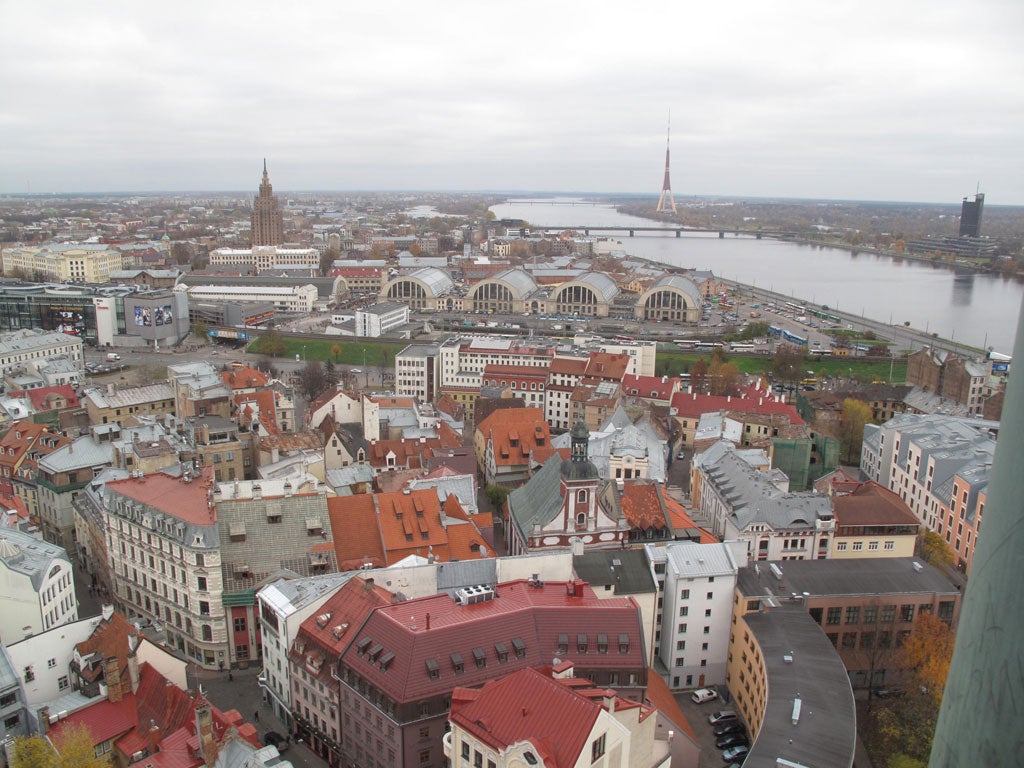Simon Calder: From Barnsley to the Baltic - the B&B boom
The man who pays his way

In a week when Europe's economy appears to be melting, sweating one's assets looks a smart strategy. Your children may have flown the nest; you may be inclined to stay at your partner's residence; or you may just have a spare room. Whatever the reason, surplus space is a potential tourism resource. According to the accommodation website Airbnb, you can turn a big profit by turning into a B&B proprietor.
"Make the extra money you always wanted," Airbnb invites, "by renting to travelers" (it's a Californian company). Its "How much could you make?" panel predicts earnings by location.
I tried a few possibilities.
"You can easily make £788 renting your private room in Chester per month," it promised. Edinburgh residents with spare space can expect £923. Very precise figures, you might think. I did, too, so I tapped in a few locations not yet in the same touristic galaxy as our cathedral cities and national capitals. If you happen to live in Scunthorpe, Barnsley or the South Wales steel town of Port Talbot, it's your lucky day. These are the new stars in UK tourism. Sophisticated travellers, insists Airbnb, are queuing up to hand over £990 a month to stay with you.
That slightly musty room full of junk you've not had the time or energy to throw away turns out to be a des res worth a grand a month. Crack open the prosecco.
The "demand" component of the business comprises travellers like you and me. On my trip to research 48 hours in the Latvian capital earlier this month, I tested Airbnb, paying $62 – about £40 – for a night in a "Cozy appartament in center of Riga".
The hosts, Ieva and Guri, were seeking "mature people, who do not intend to make parties". No parties for me: a place to leave a backpack and get some sleep was all I needed. Before I explored a city that November smiles so benignly upon, I needed only to track down 2a Elizabeth Street, one of Riga's main thoroughfares. What could possibly go wrong?
Elizabeth Street is a broad, graceful avenue, flanked with mansions reflecting the city's golden age a century ago. As is eastern European practice, one or two house numbers serve an entire city block. I plodded past 8, 6, 4 and found 2b, home to the Ukrainian Embassy. So 2a must be the next along, though the next half-mile was a swathe of the parkland that softens so much of the city. But it wasn't.
A trio of local taxi drivers looked at the address, looked at me, chuckled, and directed me to the former Communist Party HQ. Time to admit defeat and call my host. Guri told me to meet at the Ukrainian Embassy – not an invitation I'd had before. He led me to a building between 4 and 2b, swathed in scaffolding and netting, that I had passed it ages ago, but ignored.
The fifth-floor flat (no lift – you evidently have to be both mature and fit) was clean, comfortable and huge. Just the place for a party. No time for fun, though: I had to inspect conventional accommodation in the shape of the Blue Cow Hostel, the Hotel Centra and the Ekes Konvents.
So long as these places keep the big sign reading "Hotel" outside, they may yet be able to cope with the new competition.
When words fail you, it's time to check into a hotel
Wandering through Riga's autumnal bliss, I bumped into Pushkin. Russia's national poet stands tall and handsome beside the canal that threads through the city. Now he would make a good Airbnb guest, I thought.
Prospective guests are encouraged to get to know their hosts in advance online: "Share your favorite travel destinations," enthuses Airbnb, which presumably for him would include the Palace of the Bakchisarai for the "ceaseless murmur" of its fountains, and possibly "the Moscow of a hundred golden domes".
The website also asks: "Do you have a life motto?" While the great Russian Romantic author might respond with his melancholy line "I've lived to bury my desires, and see my dreams corrode with rust", the average British traveller will be more prosaic. For example: "At border crossings, don't take your eyes off your possessions for a moment." But if the online correspondent persists, try this: "Chance encounters, not online chats, are at the heart of travel." Oh, and another thing: "Hotels are great: they don't ask questions."
travel@independent.co.uk
Subscribe to Independent Premium to bookmark this article
Want to bookmark your favourite articles and stories to read or reference later? Start your Independent Premium subscription today.

Join our commenting forum
Join thought-provoking conversations, follow other Independent readers and see their replies